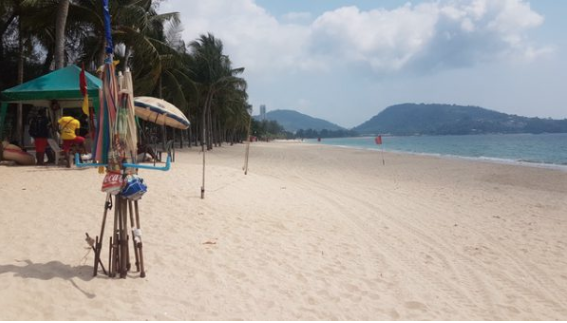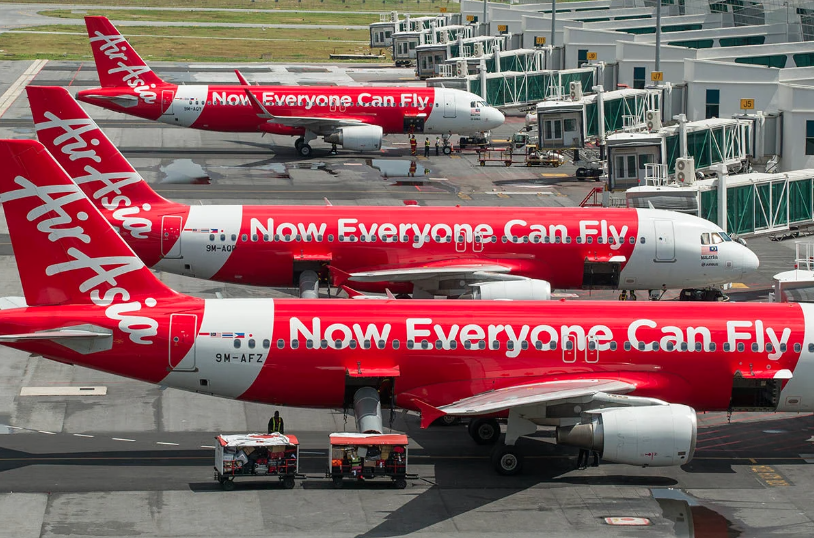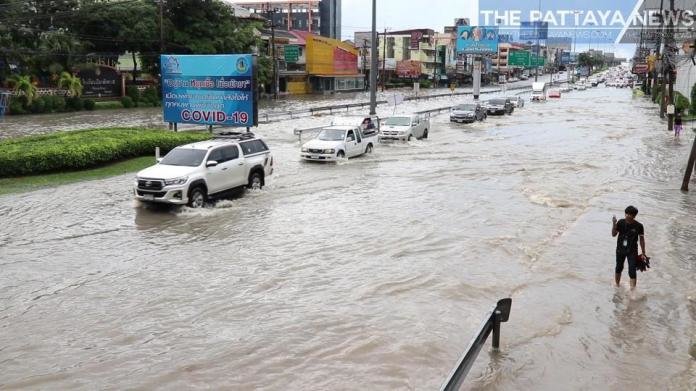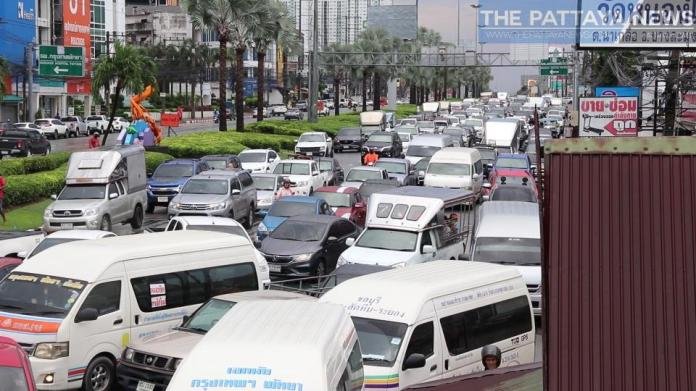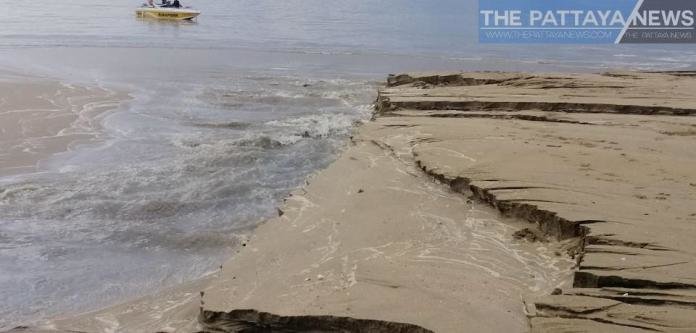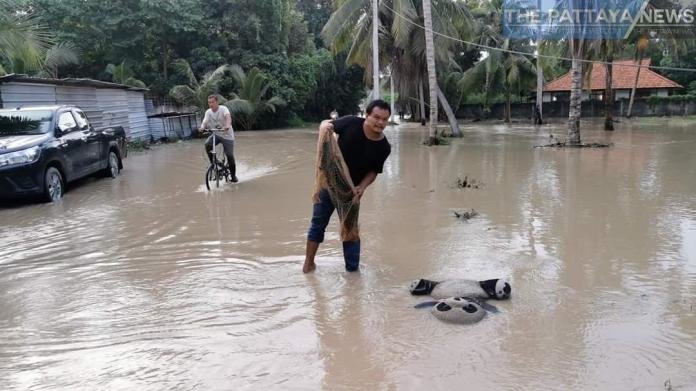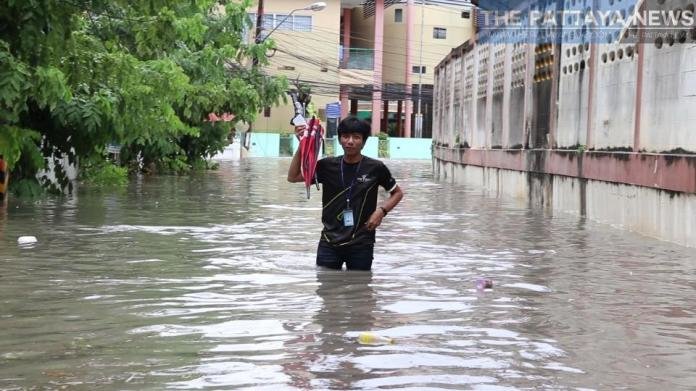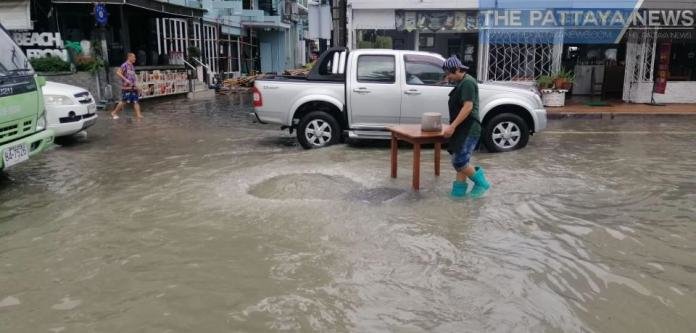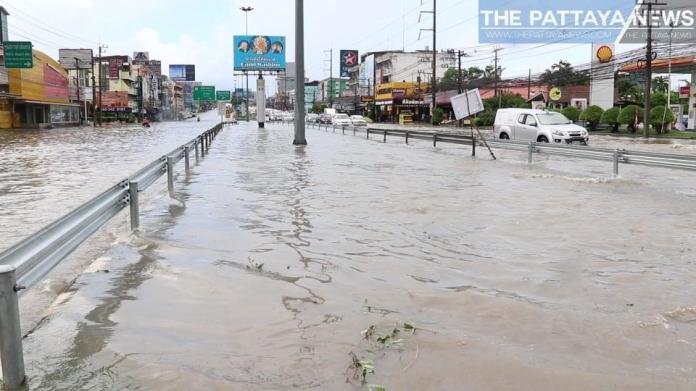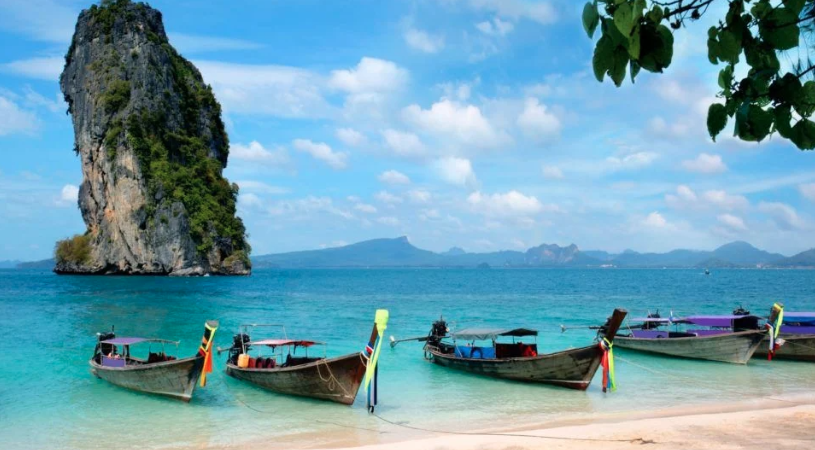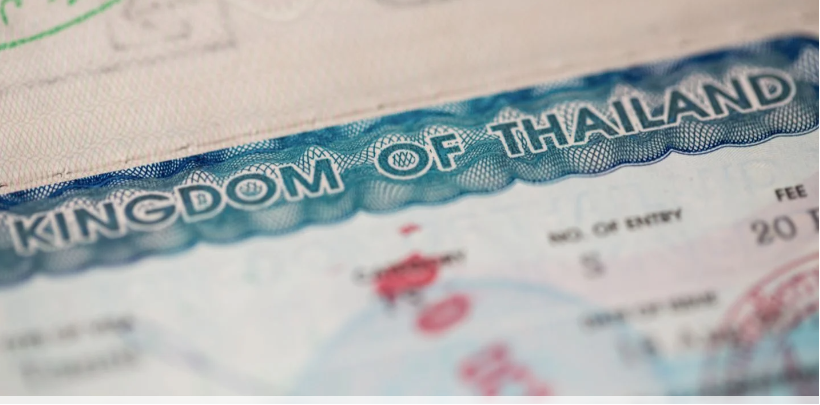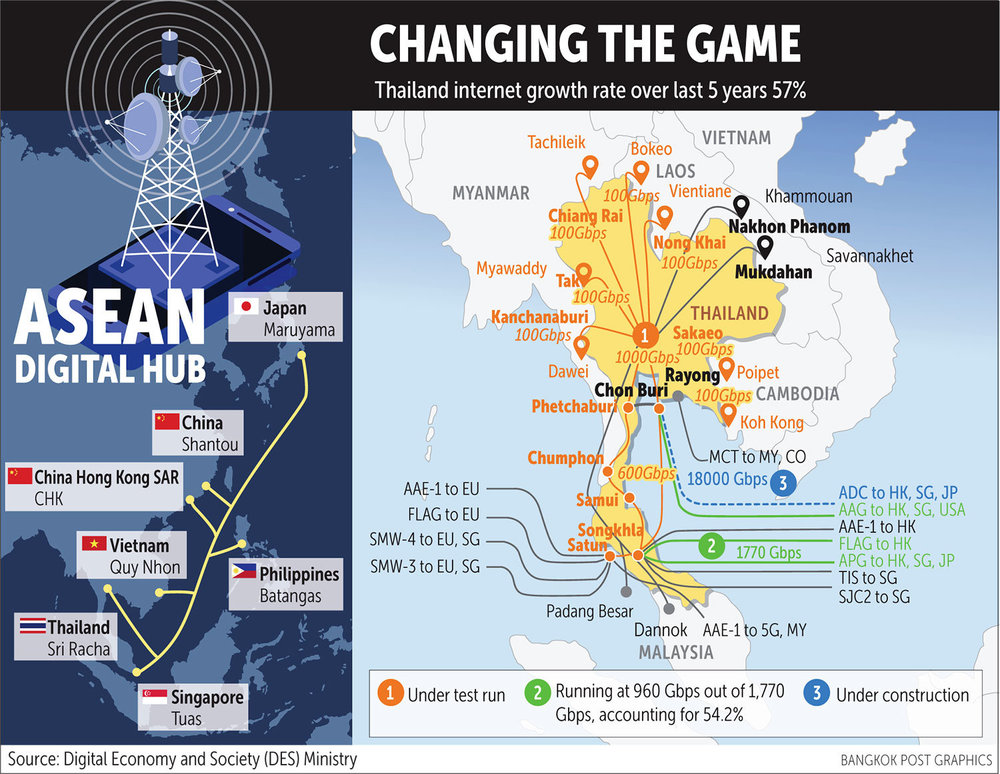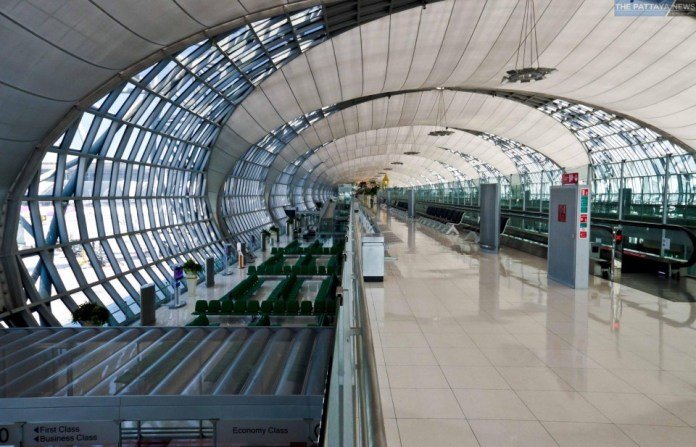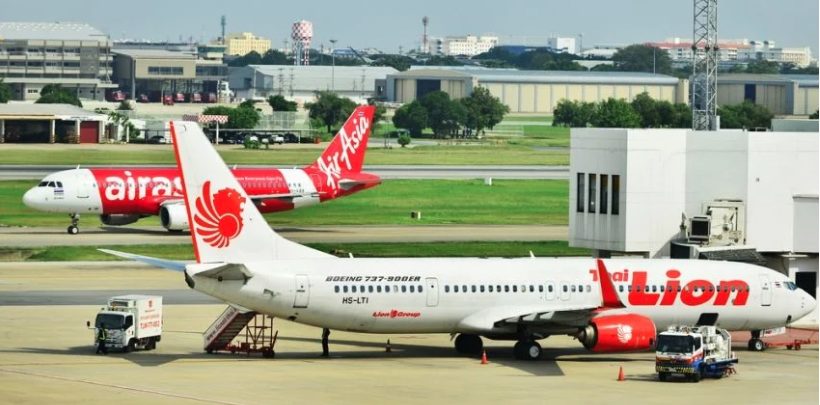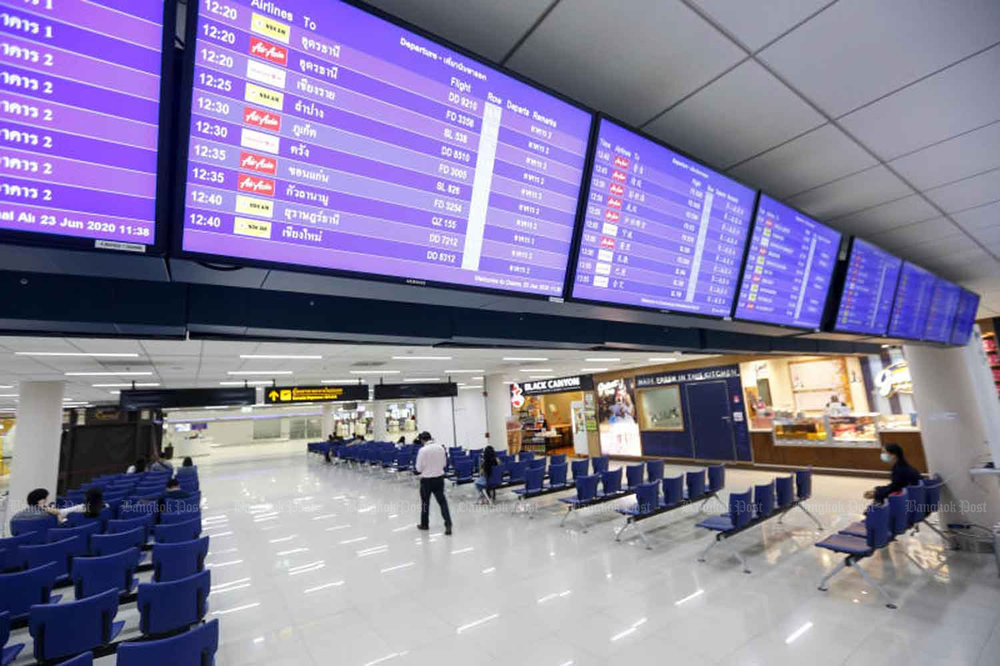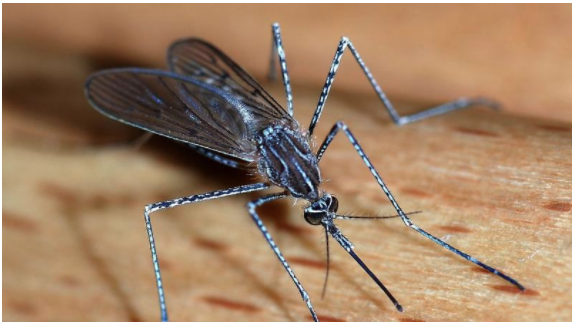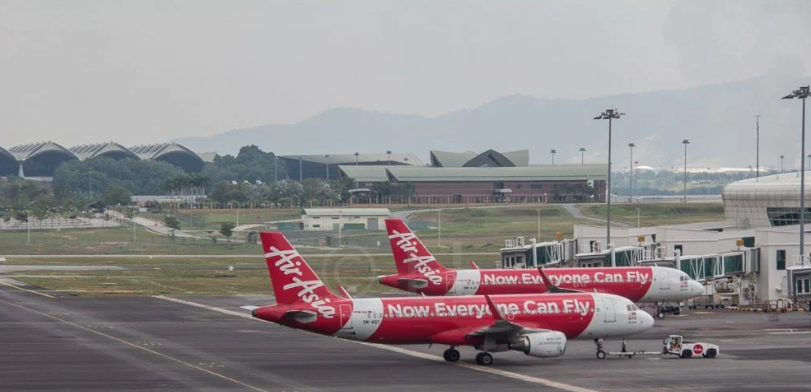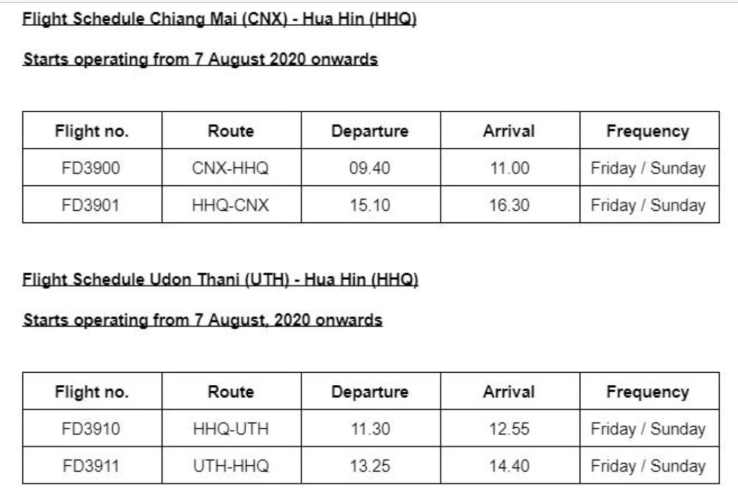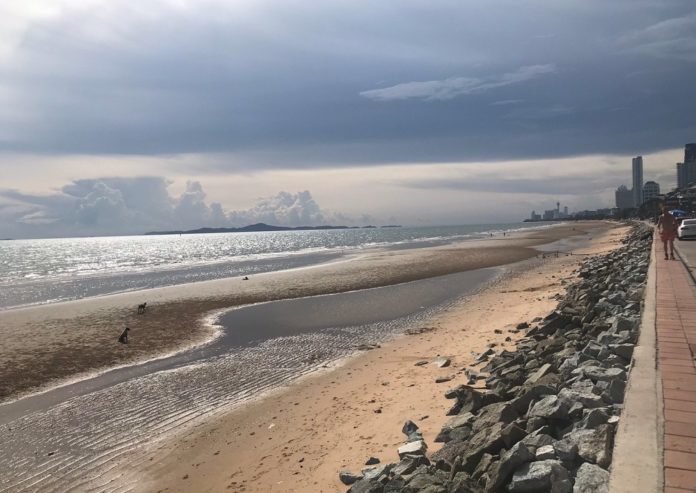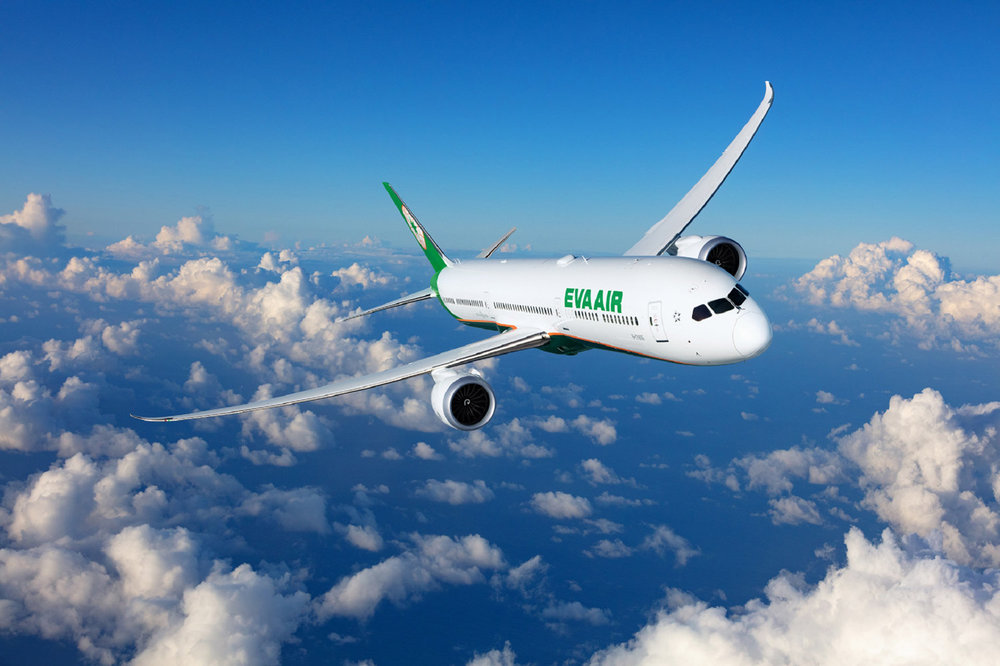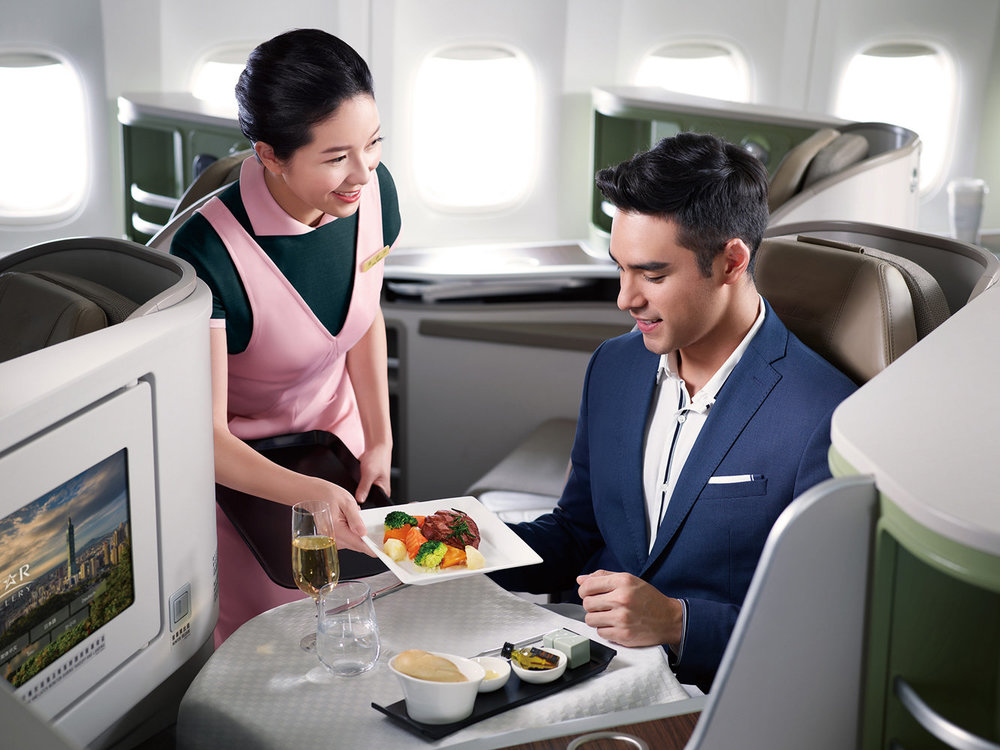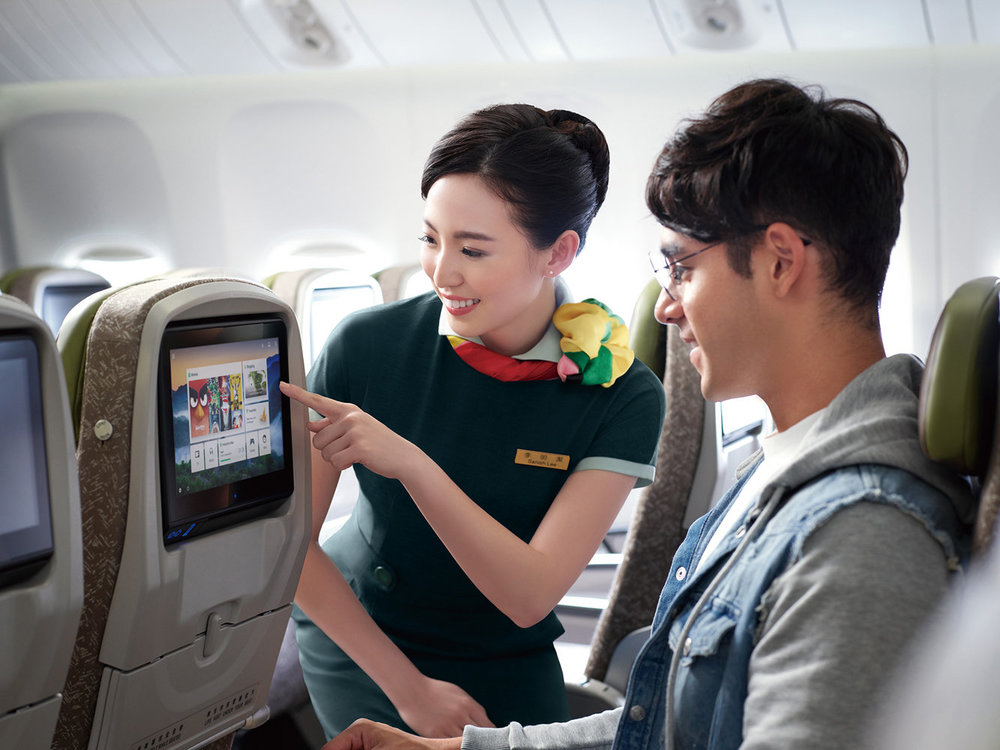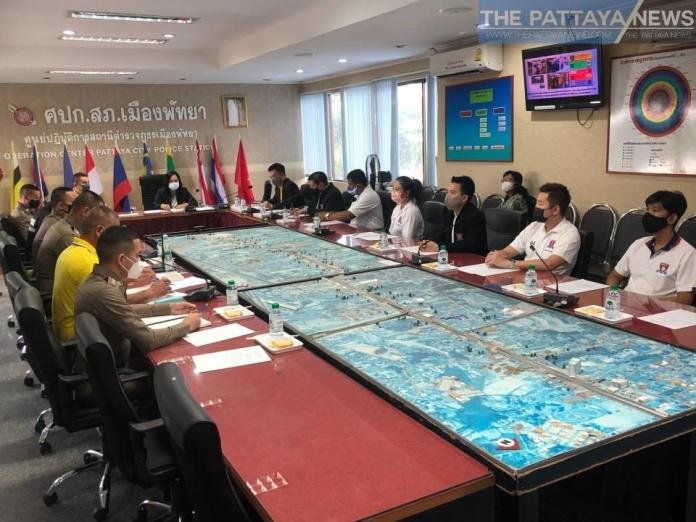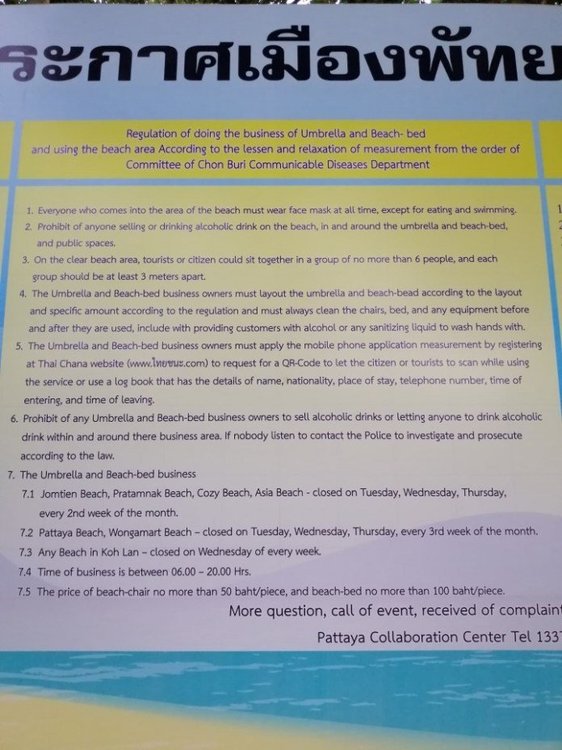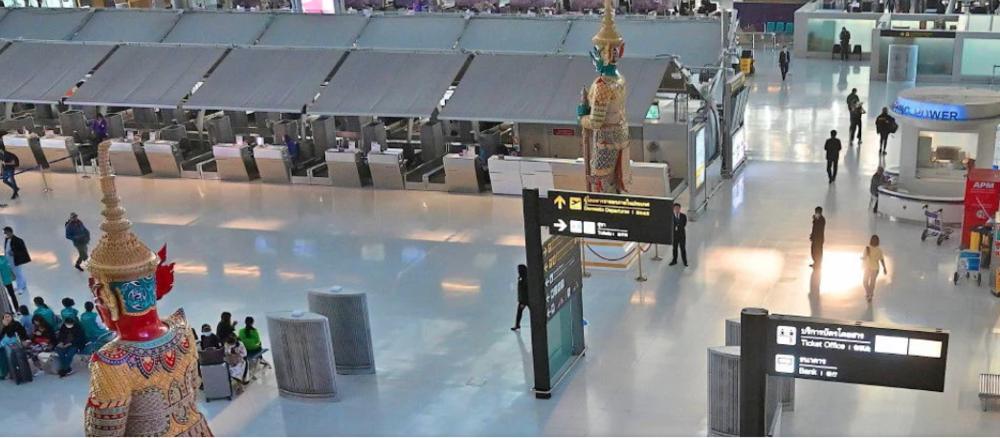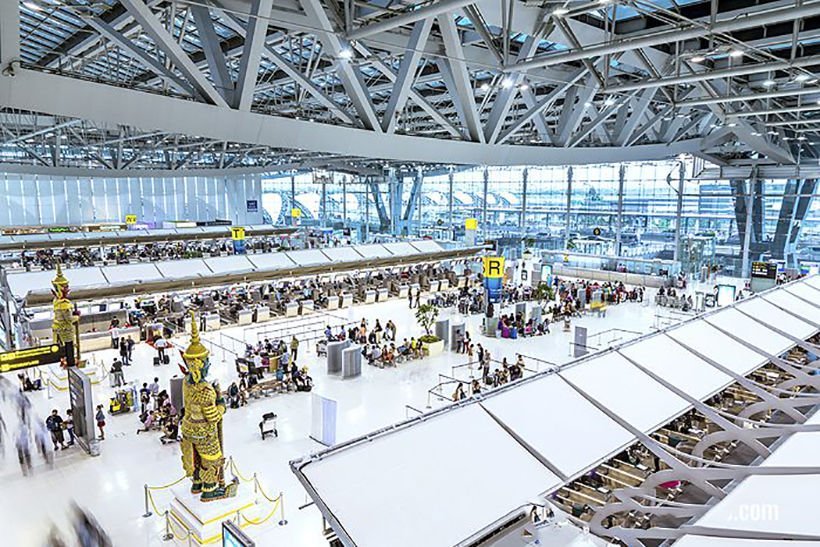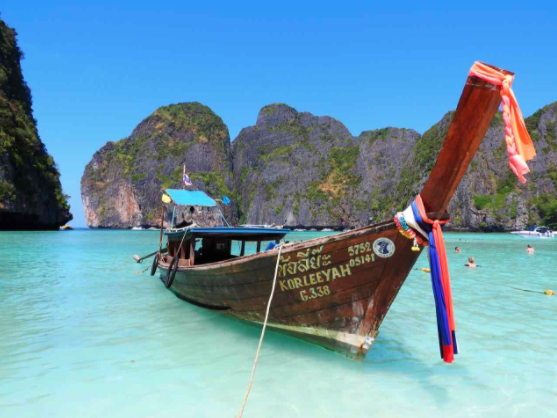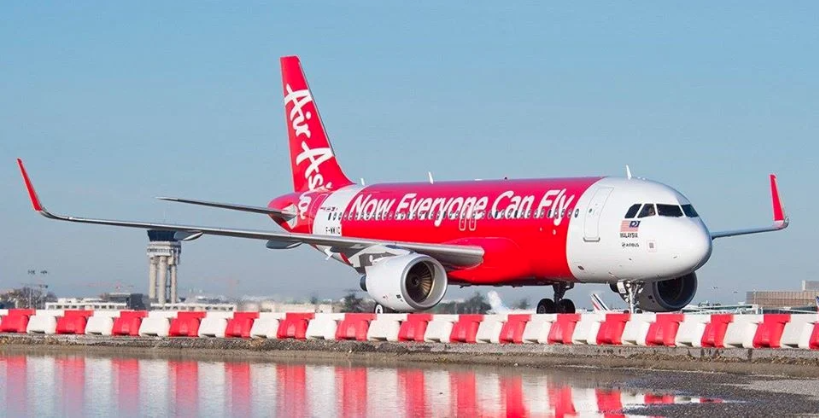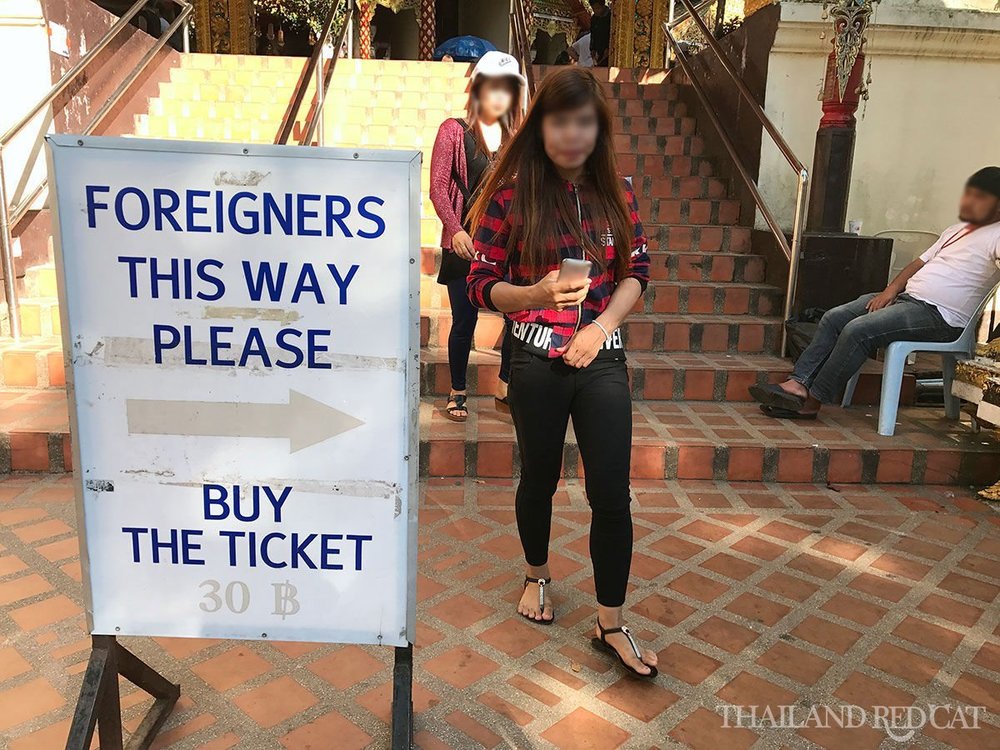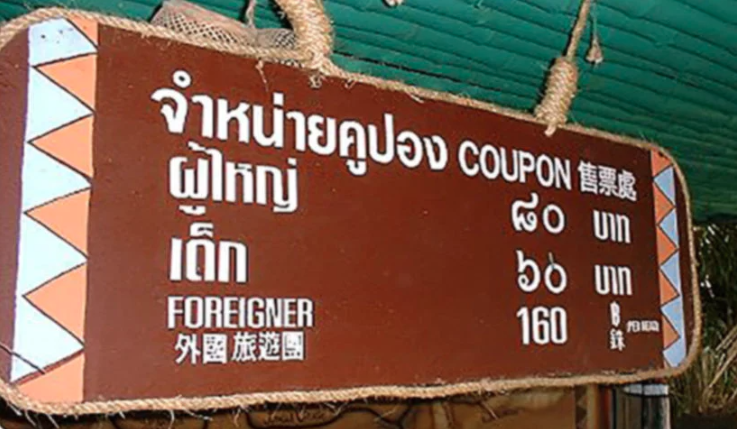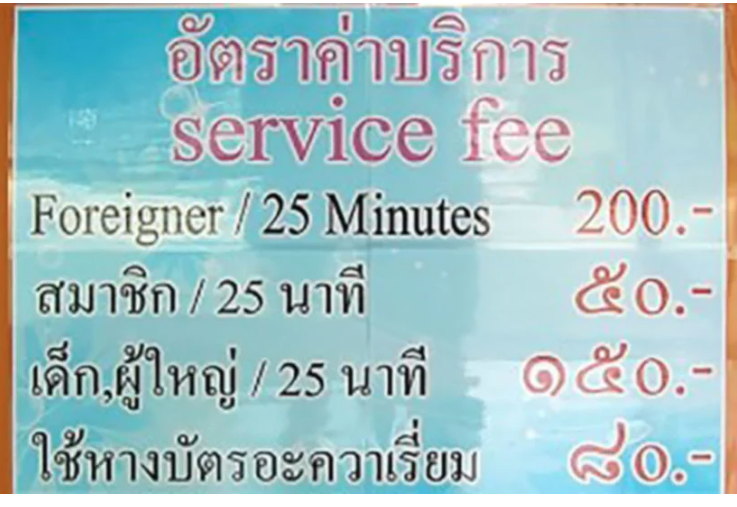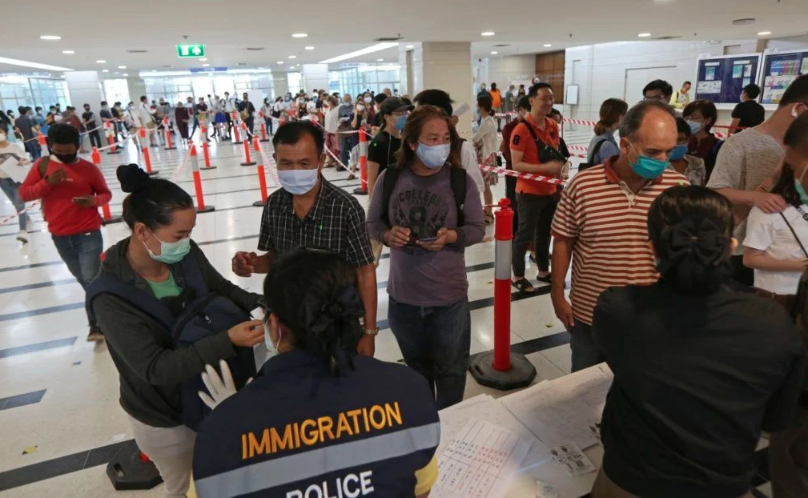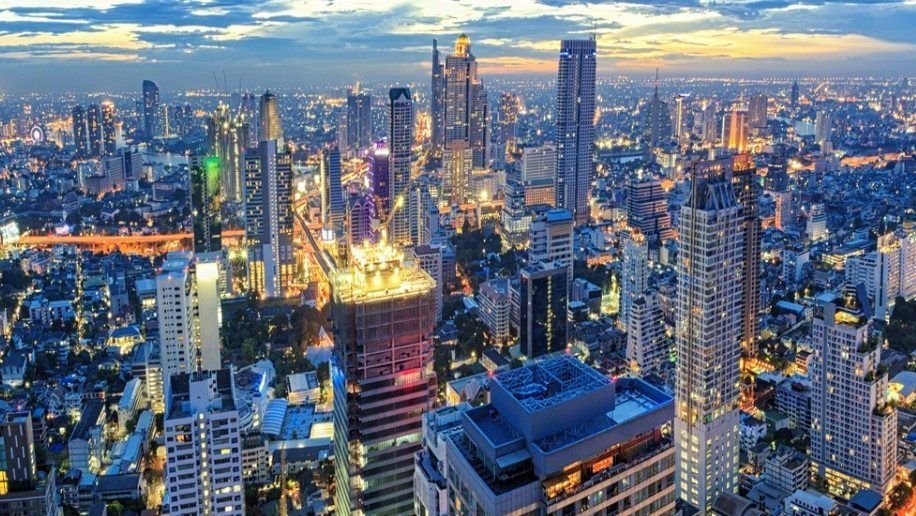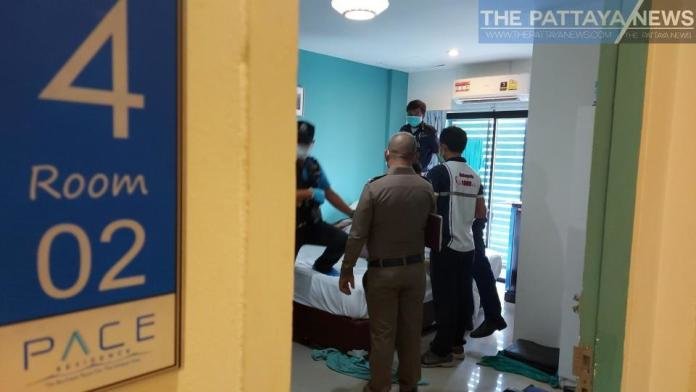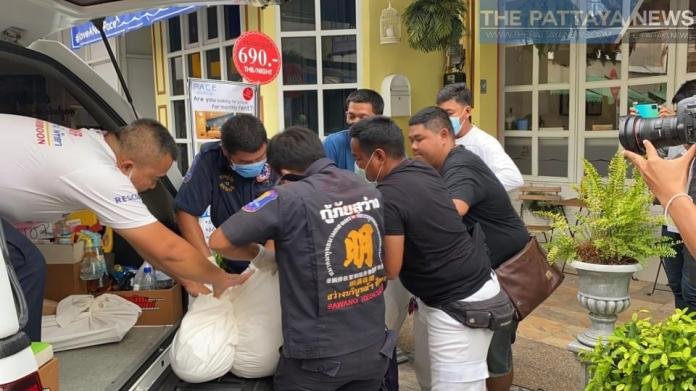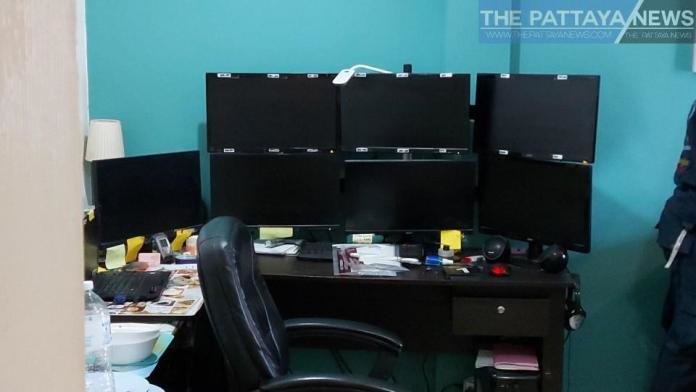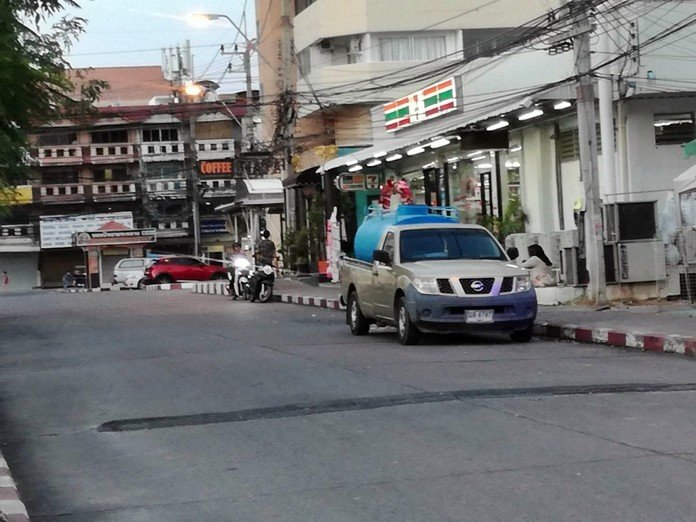-
Posts
163 -
Joined
-
Last visited
Content Type
Profiles
Forums
Blogs
Events
Everything posted by 247 NEWS
-
Resort island looks to diversify after Covid-19 cripples tourism Phuket has been forced to take on board a difficult lesson: that it shouldn’t have clung to tourism as its single, dominant cash cow. The country may have managed to flatten the Covid-19 curve, but the economic curve risks going into freefall. Tourism has been one of the hardest-hit sectors and Phuket businesses, which rely almost exclusively on foreign arrivals, dread to estimate when the current economic crisis, one of the worst in recent memory, will bottom out. TOURISM HIT HARD Phuket may have been the victim of its own success. Firmly positioned as a world-class destination, the island province has earned substantial revenue from foreign visitors, many of them with deep pockets. So when a destructive disease like Covid-19 forced border closures and ground flights to a halt, Phuket’s income slowed to a trickle and the local economy risks total meltdown. The sheer scale of economic damage to Phuket caused by the pandemic has revealed a systemic void in the province’s preparedness to effectively counter or mitigate a sudden nosedive in the industry. The sector employed 323,219 people locally before Covid-19 struck early this year, generating 245 billion baht in annual gross provincial product, according to provincial governor Narong Woonsew. He said a whopping 80% of the province’s economy relies on tourism. The damage so far to the province’s tourism sector brought about by the outbreak is estimated at 160 billion baht. The figures present real cause for concern. Tourists visiting Phuket this year are forecast to shrink to five million, substantially down from last year’s figure of 14.4 million. Of those five million tourists, 1.5 million will be Thais. bangkokpost .
-
Overly harsh travel restrictions are destroying aviation: AAPA More than 6 months into the Covid-19 pandemic, the Association of Asia Pacific Airlines is urging governments around the region to ease what they view as unduly burdensome restrictions on international air travel and re-establish global connectivity with evidence-based measures to safeguard public health. The industry is taking initial steps toward restarting international operations by working closely with governments, health authorities and other stakeholders. Most international flights worldwide are still grounded by border closures and other travel restrictions, even though domestic lockdowns are gradually being eased. The economic consequences of such lockdowns are extensive and dire, with the travel and tourism sectors amongst the hardest hit. Many airline failures and major job losses have been announced, and could become more widespread if the crisis becomes prolonged. Hopes that international air travel might gradually return in the second half now seem premature, as governments turn their attention and resources to fight resurgences in domestic infections. The publication in June of guidance material in by the Council Aviation Recovery Taskforce of the International Civil Aviation Organization to anchor coordinated efforts to restart international air travel was a significant step in the right direction and welcomed by the industry. But progress has been slow and uneven. While there have been initiatives and discussions about opening up international air corridors, “travel bubbles”, “green lanes” or “fast channels”, such initiatives have failed to gain traction due to their impractical requirements and inherent unscalability. The AAPA reports that good progress is being made on widespread testing and contact tracing, wearing of masks and social distancing in the context of international air travel, but these need to be consistent and coordinated amongst governments working closely with airlines, airports and health authorities. Public attitudes towards air travel are evolving as confidence is rebuilt. However, a major obstacle is the widespread imposition of blanket quarantine measures by governments on inbound passengers. This makes any attempt to travel internationally by air extremely daunting, with questionable benefits over the need for quarantines once sufficient community testing and contact tracing measures are in place. Furthermore, the unpredictability and changing requirements of such measures only add to the confusion for both airlines and passengers. According to the AAPA’s director-general: “International isolation is not a sustainable long term solution for any government given the importance of travel and trade in supporting global economic and social activity. After more than 6 months, the lack of a framework encompassing harmonised or mutually recognised measures that are pragmatic, consistent and based on robust risk assessment, will not only irretrievably hurt the region’s airlines, but more importantly, negatively impact the region’s tourism and trade prospects. , as well as millions of livelihoods. We must take a pragmatic approach to restart flights gradually while mitigating risks to restore confidence and trust in the reliability of everyday air travel. “ “Quarantine measures should only be applied selectively for passengers originating from higher-risk locations. Another critical area for cooperation is reaching a common understanding on the use of Covid-19 testing as a further risk mitigation measure in screening international passengers, based on mutual acceptance. “ “Restoring international air connectivity is a shared challenge. We are calling on all governments to work cooperatively to re-establish global connectivity whilst maintaining appropriate measures to safeguard public health. Asia Pacific airlines remain fully committed to working closely with governments and other industry stakeholders to progressively restore international air links in a safe and secure manner, serving the needs of the travelling public and enabling the industry to continue to fulfill its key role in supporting wider global economic recovery. “ SOURCE: TTR Weekly
-
Heavy rain brings more flooding and traffic chaos to Pattaya City-Video Pattaya- Heavy rain in Pattaya City this afternoon caused major flooding and traffic delays on many Pattaya roads. A video we took is below. The rain hit mid afternoon and lasted for about an hour and a half. At times, the level of the rainfall was quite heavy. The heaviest flooding was reported on Sukhumvit Road, Pattaya Beach Road, Pattaya Third Road and areas with low elevation such as South Pattaya, Nong Yai, the railway road, Soi Khao Talo and Soi Khao Noi. Water found on road surfaces ranged in height, with particularly deep water at several feet deep on Sukhumvit Road in front of the Mueang Pattaya 4 School. On Pattaya Beach Road, water had been released to the sea as there was major flooding. Portions of the beach appeared to suffer from flood related damage as well. Traffic remained backed up along major roads for several hours. Traffic police were sent to multiple areas to brave the storms and help direct traffic. The Pattaya City Mayor, meanwhile has said that the drainage projects designed to fix this issue that have been ongoing for a year is not yet completed. Additionally, several city water pumps are currently not working and are waiting for repair parts that are backordered and in the process of securing. He stated the project was delayed by several months when the city had all construction work stop due to the Covid19 Coronavirus situation. The Pattaya News
-
Tourism sector facing massive closures Thailand’s tourism sector, long seen as a lifeline for the nation’s battered economy, is in a meltdown; more than 30% of tourism-related businesses have left the market with many more expected to follow, according to the Tourism Council of Thailand. The president of the TCT says the tourism industry predicts further deterioration after 6 months of the Covid-19 crisis, as many businesses are closing operations or selling off assets, deciding not to wait for an uncertain recovery. He says the types of businesses most affected by the crisis are tour operators, bus services with small fleets, restaurants, souvenir shops and hotels that focused on foreign tour groups, especially the Chinese market. He says the TCT is still collecting the exact number of members fleeing the sector, which he believes amounts to more than 30% in the first half of the year, as Thailand continues to seal its borders to international tourists. The Tourism Department said 1,111 tour operators in the January-June period surrendered their licenses and asked for the return of their guarantees. The figure peaked in June as 262 companies permanently quit the market; withdrawals in the second quarter made up 65.4% of all withdrawals in the first half as tourism staggered from lockdown measures. If travel bubbles aren’t implemented this year, more than 30% of outbound operators will have to permanently shut down, according to the president of the Thai Travel Agents Association. Currently, most operators have put off making any decisions as they wait for further details on travel bubble agreements with other countries. After the recent cases of an Egyptian airman in Rayong and the daughter of a Sudanese diplomat in Bangkok, these agreements may take even longer, as doctors and academics urge caution. SOURCE: Bangkok Post
-
Proposal being ‘examined’ by authorities for a possible visa amnesty extension Today the government’s Centre for Covid-19 Situation Administration has briefly addressed the issue of the current visa amnesty, which is due to finish on July 31. The issue was mentioned today as part of the daily briefings. The visa amnesty was announced, then extended, in April to allow foreigners with lapsed visas, to stay in the country without having to visit an immigration office or prepare new paperwork, until the end of July. There has been a lot of speculation in the past few weeks but no official comment from the government. At today’s briefing of the CCSA the spokesperson, Natapanu Nopakun said that a third proposal of an extension for visa amnesty “is being drafted and reviewed by relevant agencies”. He also announced that people should… “stay tuned for further announcements from Thai Immigration in the very near future”. The comment mentioned a ‘proposal’ and is no guarantee that the current visa amnesty will be extended again. Nopakun made no additional comments if there would be any conditions or requirements regarding the proposed extension. The Thaiger would continue to urge anyone currently in Thailand, without a current visa, to examine their options just in case an extension is not announced. The Thaiger
-
Govt lines up digital hub Ambitious plans to become Asean leader Digital Economy and Society Minister Buddhipongse Punnakanta opens the Bangkok Post's '5G: The Game Changer' conference at the Centara Grand at CentralWorld. (Photo by Pattarapong Chatpattarasill) The government is pinning its hopes on two major projects to achieve its goal of becoming a digital hub in Asean. A Low Earth Orbit (LEO) satellite business is being funded through an amendment to the Space Affairs Act and the country is expanding its submarine cable capacity to make it more efficient for Thais to access digital infrastructure at an affordable price, says Digital Economy and Society (DES) Minister Buddhipongse Punnakanta. He told the Bangkok Post's "5G: The Game Changer" forum on Thursday that LEO satellites operate between 500- 2,000 kilometres above the Earth's surface compared to the 36,000km height of so-called geostationary satellites, the traditional types of communications satellites. "The advantage of the lower orbit is lower latency. It will benefit everyone with access to high-speed internet services via 5G technology, IoT [Internet of Things] devices, M2M [Machine to Machine] technology," he said. Other advantages include drone technology and applications in areas that require high levels of accuracy, such as remote surgery, and LEO satellite systems are ideal to power these applications due to their low latency. Future comes early Saviour or hype? DTAC Q2 revenue falls 3.6% Mr Buddhipongse said the government had added some key details to the Space Affairs Act, concerning licensing and business structure, enhancing its definition of space affairs infrastructure as well as types of satellite business categories. Currently, the LEO projects are run by two companies, Space Exploration Technologies Corp (SpaceX) and London-based satellite internet access provider OneWeb. Commercial services for LEOs are expected for 2021. Mr Buddhipongse said the government was, through CAT Telecom, developing Thailand to be the digital hub of Asean by expanding the capacity of submarine cables and creating new ones via a consortium agreement signed in February. The new submarine cable under the consortium is expected to be completed in the next two years. Mr Buddhipongse said 5G tech was becoming a major blood vessel in the digital infrastructure for Thailand's recovery as well as reshaping the country to lead the Asean region through a collaboration of public and private sectors. Meanwhile, major mobile operators will forge the country's social and economic development through 5G technology. "During the Covid-19 pandemic, Thailand has efficiently handled the outbreak thanks to critical infrastructure of the 5G network installation following the 5G licence auction in February," he said. Mr Buddhipongse said the "new normal" had affected both society and the economy, driven by tech-driven factors and proactive healthcare measures. More importantly, the new situation was already pushing public healthcare to be a major factor for attracting overseas investment. Mr Buddhipongse also said the government also planned to develop Thai personal health data through cloud-based data analytics. These would make it easier for people to access healthcare services and related personal health data by using only a smart ID card. The government realised the necessity for 5G tech innovation and Huawei Technology had helped by providing Covid-19 diagnosis services at Siriraj and Ramathibodi hospitals with 96% accuracy. "Reshaping the economy requires partnership from the public and private sectors," he said.
-
CAAT bans all transit flights with Covid-19 infected passengers after China bans two Thai airlines temporarily Bangkok- The Civil Aviation Authority of Thailand (CAAT) has banned all transit flights with Covid-19 infected passengers following China banning two Thai airlines temporarily after several passengers reportedly tested positive upon arrival in China. The airlines, Thai AirAsia X and Thai Lionair, were flying from Jakarta and Kuala Lumpur earlier this month and stopped in Bangkok for transit only to reportedly get the rights to fly onto China. No passengers disembarked or were exposed to the general population according to the Center for Covid-19 Situation Administration, or CCSA. The incident caused some confusion on Thai social media with some claiming, which is false, the passengers had come directly from Thailand. The CCSA stated no passengers boarded or were from Thailand. The flights were XJ808 and SL117, from Kuala Lumpur and Jakarta via Bangkok’s Don Mueang airport to Tianjin and Guangzhou, China. China has temporarily banned flights from Thai Airasia X and Thai Lionair as a result. It is unclear how long the ban will last, however with Thailand taking immediate action China has reportedly been pleased. The new rule requires that all passengers who go through transit in Thailand, regardless if they disembark, will have to have a a Covid-19 free certification. The majority of flights currently going through transit in Bangkok are repatriation style flights, the CCSA noted, and no passengers without the proper approval are allowed to disembark and enter Thailand. The new requirement for every passenger to be certified Covid-19 free, even on transit, could make it more difficult for some passengers to fly through Thailand, the CCSA admitted, but is a precaution that has to be taken.
-
Chinese aviation bans flights from 2 Thai carriers for bringing Covid-19 into China The Civil Aviation Administration of China announced yesterday that it’s banning flights by Thai AirAsia X and Thai Lion Air to the mainland from July 20-27 as a punitive measure for allegedly bringing Covid-19 patients into the country. Today both airlines announced that no one disembarked while in Bangkok. After the CAAC announced that 11 travellers aboard Thai Lion Air’s flight SL117 to Guangzhou and Thai Airasia X’s flight XJ808 to Tianjin landed there with the virus, both airlines explained that they were connecting flights transiting at Bangkok’s Don Mueang International Airport. Thai AirAsia X said the flights were routed through Thailand to take advantage of its flight status with Beijing. The Thai AirAsia X flight from Kuala Lumpur was originally coded XJ325, but had to be changed to XJ808 because they did not have permission to operate under the initial code. Chinese state media report that the 2 scheduled flights will be barred for a week starting Monday. (Nation Thailand reports that all flights from both airlines will be banned.) It says 6 passengers travelling from Jakarta, apparently infected with the coronavirus, landed July 7 aboard the Thai Lion Air flight, and 5 more passengers, 3 days later, via the Thai AirAsia X flight from KL. Thai Lion Air revealed today that its flight was a connection from Jakartathat transited at DMK (Don Mueang) before continuing on to Guangzhou. Most of the cabin crew were Chinese, and no Thai passengers were aboard, so the airline believes those with the disease were likely exposed in Indonesia. AirAsia X responded similarly, saying its flight originated in Kuala Lumpur and flew to Manila before turning around and stopping in Bangkok on its way to Tianjin. It also said no passengers deplaned in Thailand. It emphasised that all passengers were tested for the virus before boarding. China’s “carrot-and-stick” aviation policy calls for airlines operating Covid-free flights to expand their number of weekly inbound flights, with those who bring the virus being suspended for a number of weeks depending on how many infected passengers are aboard. The issue on the two flights is an indication that it is going to be complex for increasingly reluctant nations to re-open their borders in a world connected with so many flights, all potential carriers of the virus. SOURCES: Coconuts | Nation Thailand
-
New rule on transit flights through Thailand China bans two airlines for flights with infected passengers Bangkok's Don Mueang airport is virtually empty last month. China has temporarily banned two airlines after their chartered flights in transit from the airport carried Covid-19 infected passengers to Chinese cities over the past week. (Photo: Pattarapong Chatpattarasill) The Civil Aviation Authority of Thailand has banned all flights with Covid-19 infected passengers from transiting through Thailand after China banned two flights from here. CAAT director-general Chula Sukmanop spoke of the new measure on Thursday in response to the report that the Chinese government temporarily banned the services of Thai AirAsia X and Thai Lion Air for carrying some passengers infected with the coronavirus disease 2019 to China. Under the new requirement, he said, airlines must sell tickets only to passengers who had Covid-19-free certification for flights transiting through Thailand. 480p low geselecteerd als afspeelkwaliteit powered by AdSparc The requirement applies even though passengers do not get off the planes in the country, Mr Chula said. Most international flights at this time were those chartered to carry people back to their homeland. Covid transit flights through Thailand banned Tastes of Kuala Lumpur CAAT approves flight cancellations Media reported that China banned both airlines for a week after some passengers on their flights on July 10 and 13 were found to be infected. The flights were XJ808 and SL117, from Kuala Lumpur and Jakarta via Bangkok's Don Mueang airport to Tianjin and Guangzhou, China, respectively. Taweesilp Visanuyothin, spokesman of the Centre for Covid-19 Situation Administration, said both chartered flights made stopovers in Thailand, probably for the rights to fly to China since direct routes from Kuala Lumpur and Jakarta are still banned, he said. He confirmed that the passengers on both flights remained on their planes during the stopovers. About 5-6 passengers each on the two flights had Covid-19, he said. Bangkok Post
-
Beware of Dengue fever in raining season already 15 dead The raining season in Thailand always comes with groups of mosquitos, especially if you happen to live nearby a water source. Dengue fever is on the rise with 15 dead and currently 25,708 cases of the fever. Isan (Northeast Thailand) is where most cases are at. Doctor Suwanchai Wattanayingcharoen from the Department of Disease Control (DDC). The highest age range of dengue fever cases are ages between 15-24 years old, 10-14 years old come at second-most cases, and 25-34 years old at third most cases. Although found more in Isan, there are cases across the nation at the current moment. Chaiyaphum province has the highest number of dengue fever followed by Rayong Province, Khon Kaen Province, Mae Hong Son Province, and Nakhon Ratchasima. Dengue fever cases are expected to rise as the weather forecast from the Meteorological Department of Thailand predicts that many provinces in Thailand will continue to have heavy and continuous rain, resulting in more mosquitos, especially in areas near water. The DDC warns those in Thailand to beware of mosquitoes and to take safety precautions that are necessary for the household. There are 3 main ways to protect against dengue fever that includes 1. Clean your home to avoid water collection where mosquitoes can lay eggs, 2. To clean up areas around the home, especially plastic waste where water can be trapped, and 3. To store water in a closed unit. These 3 practices can help protect against more mosquitoes decreasing the risk of dengue fever, Zika Virus, Chikungunya Disease. Dengue Fever is caused by the Dengue virus, a mosquito-borne tropical disease which is why Thailand usually has a rise of dengue fever every time the raining season arrives. The symptoms of the fever include fever, headache, nausea, muscle pain, joint pain, and a skin rash appearing all over the body including the back. Onset is usually at 3-24 days after exposure to the mosquito with a dengue virus. In a small number of cases, the dengue fever develops into a severe hemorrhagic fever that results in bleeding, low blood platelets, and blood plasma leakage. These bad cases can end up in dengue shock syndrome if blood pressure drops to a dangerous level. Pattaya One News
-
Air Asia announces 2 new cross-country domestic routes into Hua Hin Two new air routes announced by local Thai AirAsia will be a boon to coastal town of Hua Hin… Chiang Mai – Hua Hin and Udon Thani – Hua Hin. The newly announced routes will allow getaways to the popular resort town on the new twice-weekly flights. The flights will be every Friday and Sunday. CEO of Thai AirAsia , Santisuk Klongchaiya, says that AirAsia is always seeking new opportunities to stimulate domestic tourism as well as offer convenient connections between the nation’s regions. He noted Hua Hin is a “high potential” destination that has long been demanded. “We believe this is the year of domestic tourism both for Thai travellers and business operators, which is why we have connected Hua Hin to the northern city of Chiang Mai and to the northeast via Udon Thani, flying twice a week on Fridays and Sundays to allow travellers to spend their weekends in the resort town with ease,” Santisuk said on TTR Weekly. “Hua Hin is a seaside town that offers incomparable relaxation. Peaceful and serene, the destination is also home to various activities and is a perfect fit for friends, couples and families with its coffee shops, fresh seafood and sites such as Mrigadayavan Palace, Hua Hin Train Station and night market.” A special fare of 777 baht per trip is being promoted to AirAsia BIG members or 820 baht per flight for other guests. The new service will start on August 7. Chiang Mai is already an established tourist destination and will provide a valuable feeder market for the new Hua Hin flights. Udon Thani in Isaan, Northeast Thailand, has a growing population and will provide weekend getaways for north-easterners, or an escape from their coastal homes in Hua Hin for an Isaan weekend. • Book July 14- 24 for travel between August 7, 2020 and March 26, 2021 at AirAsia.com. The Thaiger.com
-
JOMTIEN BEACH TO GET 1.16 BILLION BAHT MAKEOVER BANGKOK (Xinhua) — Shores of Jomtien beach in Thailand’s Pattaya will be restored and filled with more sand in order to preserve it as part of a major tourist attraction, said a senior government official on Monday. Marine Department Director General Witthaya Yamuang confirmed a private contractor has been awarded a construction project to fill the eroded shores of Jomtien beach with 640,000 cubic meters of sand and restore its seaside landscape to the extent it still be viewed as part of the world-famous beach resort city in Thailand. The sand will be excavated from the sea bed near Koh Larn island off Pattaya, Witthaya said. The project is designed to be implemented in a four-years time, beginning this year, and cost some 1.16 billion baht (about 37 million U.S. dollars), according to the department’s director general. The seven-km-long shores of Jomtien beach, close to Pattaya beach, have been largely eroded and deteriorated.
-
EVA Voted 4th of World’s Best International Airlines Travel + Leisure reader-rated on comfort, service, food, value Travel + Leisure readers voted EVA Air in the Top-10 International Airlines of the magazine’s 25th annual World’s Best Awards reader survey. Based on personal travel experiences, readers were invited to rate airlines for cabin comfort, ground and inflight service, food and value. Survey results are available on the Travel + Leisure website now and will appear in the August 2020 print edition. Travelers can learn more about EVA and book flights at www.evaair.com. Travel + Leisure points out that 4th ranked EVA moved up one spot from last year as readers praised its service, food and premium economy seats. One reader had even higher praise for flying sitting up front: “My business class trip from Chicago to Taipei was the best airline experience I’ve ever had. Steak cooked to order, hot food options between mealtimes, plush down comforters and tons of legroom. Some business-class seats have a very narrow spot for your feet when the seat is lying flat but EVA’s seats had enough space for rolling over and getting a great night’s sleep.” “We are grateful for all of the support from passengers around the world,” said EVA President Clay Sun. “We never stop trying to excel and aim to make every passenger’s flight delightful with services and experiences that exceed expectations. Now, as we work to address impacts of COVID-19 on our own operations and our entire industry globally, we are also doing our best to maintain basic services to most of our major destinations. We continue to pay careful attention to details while we are simplifying services and taking additional measures to help prevent infection spread. We thoroughly sterilise cabins and follow strict protocols to safeguard our passengers’ health so they can be confident when they choose to fly with us.” Travel + Leisure conducted the annual survey between November 4, 2019 and March 2, 2020. Readers were invited to participate through the printed magazine, tablet editions, newsletters, social media and at www.travelandleisure.com. It required a minimum number of responses for a candidate to be included in the World’s Best Awards rankings. In addition to airlines, readers voted for airports, car-rental agencies, cities, cruise lines, destination spas, hotels, islands, tour operators and safari operators. United Airlines Warns It May Furlough 36,000 Staff EVA Ranks 3rd in AirlineRatings’ World’s Safest Airlines for 2020 Deadly crash, fake pilots expose Pakistan’s broken airline In order of ranking, Travel + Leisure’s World’s Top-10 Best International Airlines for 2020 are Singapore Airlines, Qatar Airways, Emirates, EVA Air, ANA, Air New Zealand, Japan Airlines, La Compagnie, Cathay Pacific Airways and Virgin Atlantic Airways. EVA’s high standards for safety, service and cabin comfort earn high praise from multiple industry and government organisations every year. It has been recognised as 8th among the World’s Top-20 Airlines and 3rd of the World’s Top 20 Safest Airlines by AirlineRatings.com, 3rd in the World’s Best Airlines by TripAdvisor, 9th on the annual JACDEC Airline Safety Rankings and it has been recognised as a SKYTRAX 5-Star Airlines since 2016.
-
Pattaya entertainment venue operators meet with Pattaya Police to ask to extend closing times past Midnight Pattaya- Pattaya entertainment operators met with prominent police officials yesterday at the Pattaya Police Station to ask to extend entertainment venue closing times in the city past midnight. The meeting held yesterday at the Pattaya City Police Station was led by the Pattaya City Police Chief Colonel Kemmarain Pitsamai and a member from the Pattaya City Police committee Ms. Amphon Kaewsang. This follows entertainment venue operators at a national level also pleading with the government to allow them to stay open later in an already hard-hit industry that faced a four month closure recently due to Covid19. Ms. Amphon said entertainment operators are hoping to extend the closing time from midnight for a variety of reasons. She stated that Pattaya, as a special administrative zone with special entertainment licenses, historically is open late and that many business owners, especially nightclubs, have been asking for the closing times to be extended by at least two hours to 2:00 AM. The current midnight closure was mandated by the Thai Government due to the Covid19 Coronavirus situation. Colonel Kemmarin said the COVID-19 situation is getting better. However Pattaya needs to follow the national measurements at this time, despite the special administrative zone status. This is due to the emergency decree and government direction on nightlife related venues, he said. Colonel Khemmarin said he is well aware entertainment venue owners wanted to be open later and that they were losing potential revenue by closing earlier than usual. He said he sympathizes with the industry, which is a majority of business in Pattaya, and their recent four month closure. However, until Pattaya City gets more direction from the government on easing the rules or the emergency decree ends allowing the city to self govern as a special administrative zone the midnight closure time will stay, Col. Khemmarin concluded. He also warned venues that were “pushing the buttons” on staying open past midnight that this would not be tolerated and police would strictly uphold the closure time of midnight at this time. https://thepattayanews.com
-
Pattaya Beach installs billboards detailing rules during the Covid-19 era Pattaya- Earlier this month the Pattaya City Administration installed multiple bilingual billboards on Pattaya beach which detail rules during the “Covid-19 Coronavirus” era. The above rules can be seen in the photo, however, we will highlight and “Cliff Notes” the rules here: 1. Face masks must be worn at all times except for eating and swimming. 2. No consumption of alcohol anywhere on the beach. 3. Groups must have no more than six people and must be three meters apart. 4. Beach beds and rental chairs must be spaced out with physical distancing in mind and sanitized regularly by staff. 5. The Thai chana platform for Covid-19 tracing must be used at all beach bed and chair rental services. This is a mobile phone platform for checking in and out, Chana is the thai word for victory. 6. Beach vendors must not sell alcohol and police should be called if people refuse to follow the rules either drinking or selling. 7. The major Pattaya area beaches EXCEPT Pattaya Beach and Wongamat umbrella and beach chair rental areas are closed on the second Tuesday, Wednesday and Thursday of every month. The beach is open, only these areas are closed for cleaning of the sand by the city overnight. 7a. Wongamat and Pattaya beach chair rental closures are the third week of every month, Tuesday, Wednesday and Thursday. 7b. Koh Larn beach chair rental closures is every Wednesday. 8. Hours of the beach umbrella chairs and rentals are 6:00 AM to 8:00 PM 9. Beach chairs may not charge any more than 50 baht a piece and beach beds may not be any more than 100 baht a piece for rental. Complaints should be directed to the city call center at 1337. Thailand has not recorded a single, confirmed locally spread case of Covid-19 in 48 days as of press time.
-
Poll shows most Thais still oppose foreign arrivals A recent survey carried out by the National Institute of Development Administration, or Nida Poll, shows that a majority of Thais still oppose opening the country to foreigners, even if they’re not infected with Covid-19, saying the global coronavirus situation is still very serious. The poll was conducted on July 6-8 on 1,251 people aged 18 and over, of various education levels and occupations throughout the country. A “medical and wellness” program would open the country to foreigners who test negative for Covid-19 to receive medical treatment. They would undergo a mandatory 14 day quarantine before being allowed to return to their home countries. A majority or respondents – 55.3% – disagreed with the program. Of those, 41.4% strongly disagreed, saying those admitted could be asymptomatic carriers and cause a second wave of infections, while Thailand already has many infections imported by Thais returning from abroad. Another 13.9% said they disagreed because the situation does not yet warrant allowing foreigners in, even if they have health certificates. On the other hand, 23.1% agreed with the program, saying it would enhance the reputation of Thai medical facilities and spur the economy; and 21.6% moderately agreed, reasoning that measures taken by Thailand have proven effective against the spread of the virus. A second proposed program would allow those foreigners admitted for medical treatment to travel around Thailand after undergoing a 14 day quarantine. 37.9% respondents strongly opposed this and and wanted Covid-19 to be 100% eradicated first because they have no confidence in the 14 day quarantine, while 14.5% disagreed with it, although less strongly, for fear of a second wave, since Covid-19 was originally imported by foreigners. Conversely, 24.1% strongly supported the program, saying it would help rehabilitate tourism and stimulate the economy, while another 23.3% said they somewhat agreed with it for showing confidence in Thai medical services. The rest had no comment or were not interested. Asked about the travel bubble program that would allow foreigners from virus-free countries to visit, a majority – 54.4% – agreed with it. Of them, 25.9% strongly agreed, saying it would help spur the economy and revitalise the airline industry. On the other side, 29.6% strongly opposed the program. When asked whether they were confident the government could contain the spread of the virus if foreigners are allowed into the country under these programmes, 59.6% were not confident, while 39.3% were. SOURCE: Bangkok Post
-
Travel bubbles may be postponed “indefinitely” The Civil Aviation Authority of Thailand now says the proposed “travel bubble” scheme, which could have allowed limited numbers of tourist arrivals from designated “low risk” countries, may have to be “postponed indefinitely”, after its 3 target partners – China, Japan and South Korea – experienced new outbreaks of Covid-19. On Tuesday, the CAAT’s director-general told reporters he expected Thailand to start exchanging tourists in August with countries that had controlled their coronavirus epidemics as Thailand has. But while negotiations have begun, new outbreaks in Beijing, Tokyo and outside Seoul now mean “we probably will have to postpone indefinitely.” He says the government will monitor outbreaks around the world for the rest of the month. Although the CAAT is not the agency that will ultimately decide whether talks will be postponed, the director-general’s comments reflect the attitude of Thailand’s leaders, who seem unwilling to accept tourists from any country where even a single case of Covid-19 was found outside of quarantine. Thailand’s Transport Minister says he can’t predict what August and September will bring preferring to wait for a “clear policy” from PM Prayut Chan-o-cha and the Centre for Covid-19 Situation Administration. As Thailand’s government looks to continue a risk-averse attitude to re-opening its borders, the Immigration department is signalling that an extension of the current visa amnesty is “unlikely”. Not extending the amnesty for people with expired tourist and visitor visas is forcing thousands of foreigners into hasty arrangements to leave the country before the July 31 ‘sunset’ of the current amnesty. The Immigration department has made no official announcement about the visa amnesty at this stage. (The Thaiger urges foreigners in Thailand, without a current visa to live in Thailand, to contact their Embassy or Consulate in Thailand to register their situation and become familiar with flights leaving the country at this time.) The Thaiger
-
Inbound tourists should prepare for 2-week stay Leisure tourists who would like to visit Thailand during a soft reopening may have to spend at least 14 days within designated areas, though a negative test for Covid-19 after two weeks would free them to go anywhere in the country. Phiphat Ratchakitprakarn, the tourism and sports minister, said his ministry has talked with Prime Minister Prayut Chan-o-cha about creating a travel bubble for tourists, requiring them to plan a trip with a minimum 14-day stay. Instead of being kept in quarantine, tourists could still travel within five designated areas: Chiang Mai, Koh Samui, Krabi, Phuket and Pattaya. After two weeks, foreign tourists must get another swab test to ensure they are virus-free before being approved to continue their excursion to other destinations. The ministry regularly talks with the Centre for Covid-19 Situation Administration about the travel bubble plan, which is expected to be concluded in July. The scheme will be proposed to the full body chaired by Gen Prayut at a later stage. Mr Phiphat said he still hopes to launch the travel bubble scheme in tandem with low-risk countries in August, as domestic tourism alone cannot fully revive the battered tourism industry. Although the government is introducing domestic stimulus schemes, domestic tourism activity can make up just 40-45% of tourism revenue. “It is important to bring inbound visitors to help fill a big vacant spot in tourism revenue and support operators,” Mr Phiphat said. “But they have to travel with the new practice instead.” The five designated areas for leisure tourists are set to receive the first batch of leisure guests after the Tourism Authority of Thailand conducted a survey with locals and some 74% of respondents agreed with introducing travel bubbles with strict measures. CLICK HERE
-
Thai Air Asia ponders second Bangkok hub Despite reports that Air Asia’s future is in doubt, Thai AirAsia says it’s considering making Suvarnabhumi airport its new hub, alongside its already established hub in Don Mueang Airport, to increase revenue and broaden its traveller appeal. The executive chairman of Asia Aviation, the largest shareholder of TAA, says the airline is conducting a feasibility study on the move to create a hub at Bangkok’s two international airports. Tassapon Bijleveld says, due to the restrictions on flying brought on by Covid-19 lockdowns worldwide, the airline is seeking every opportunity to increase revenue. He stressed that preliminary talks with the country’s airport authority show TAA has many factors to consider, including operational costs, passenger demand and the company’s readiness to provide ground services at the new hub. Tassapon says TAA is not worried about competition from existing rivals already using Suvarnabhumi as their hub. Whenever the company decides to jump into “this new market”, TAA will offer attractive promotions for potential customers. “We’re now using just 30% of our 60 aircraft fleet, so we have to look for any place that could give us the potential to fly.” Tassapon also says Thai AirAsia X, the low-cost long-haul carrier under the same group, is working on a plan to resume flying on international routes after the Japan Civil Aviation Bureau reportedly gave the green light for flights from Bangkok to Fukuoka to resume in September. SOURCE: Bangkok Post
-
Hungry Now, Fabulous 103 FM and The Pattaya News come together to help the needy this upcoming weekend Pattaya- This weekend, Hungry Now, Fabulous 103 FM and The Pattaya News are running two major food donation charity events on Pattaya Klang, Soi 9 at 5:00 PM (Same soi as Two Lions restaurant) for those still in need. We have heard from many in the community that despite businesses allowed to open many people are still out of work and struggling, so we are doing our part to support those still in need. All who are hungry are welcome to come. Face-masks will also be given out. CLICK HERE
-
Facebook group names and shames “farang prices” In days gone by, a foreigner visiting a national park or tourist site could often expect to be charged several times the price charged to a local. Now, thanks to a Facebook community naming and shaming venues that apply “farang prices” to foreign visitors, those days are, well, numbered. Members of the 2PriceThailand Facebook group are warning each other about price gouging for foreigners regardless of their residence status, a practice openly endorsed by state and private businesses alike, despite calls of outright discrimination. The double pricing or dual pricing debate has been around ever since foreigners stepped onto Thai shores. It’s a hotly debated topic with strong opinions on both sides. “The intention of this group is to give foreigners the right to choose. We don’t think it is fair that some tourist attractions disguise the fact that they have a dual price system. Our opinion is that if they want to overcharge foreign tourists by as much as 200% then that is their decision. But, don’t do it in a way that is both sneaky and insulting.” The group also says they hope to see the abolition of the dual pricing system in Thailand. “Thai people are internationally known for their kind and generous hospitality. The actions of a few tourist attractions are damaging that reputation.” Popular British blogger Richard Barrow, who regularly writes about Thailand’s tourist attractions and scams on his websites, is the group’s admin. In 1 post, user Aisha Moller Pedersen warns that the “foreigner” admission fee for Phra Nakhon Khiri Historical Park is 150 baht; it’s 20 baht for Thais. Just to step on the beach at Nangyuan Island Dive Resort, foreigners pay 200 baht (doubled from 100 baht due to Covid-19), while Thais pay 30, a member posted Monday. Another user wrote that at Koh Chang Waterfall, the entrance fee is 200 baht for foreigners, while (adult) Thais only pay 20. A tourist attraction in Bangkok features its ticket prices in Thai and Arabic numbers. The “farang price” is nearly twice as high. “I was there during the weekend and brought my work permit as well but no luck, and worst of all the ticket seller was very rude,so, we decided to leave. This is a widespread and systematic racism which should be stopped immediately.” Another member wrote yesterday that adult foreigners pay 100 baht to enter the Queen Sirikit Botanical Garden in Chiang Mai, while Thai adults pay 40. But it’s not all negativity – members also post places that offer the same prices for Thais and foreigners. “Sukhothai Historical Park offering same prices for Thai and farang,” wrote one user in a Sunday post. “Doi Tung Tourist Attraction – no dual pricing, and the nicest gardens I’ve seen in Thailand,” wrote another, referring to the Mae Fah Luang Botanical Garden in Chiang Rai. In days gone by, a foreigner visiting a national park or tourist site could often expect to be charged several times the price charged to a local. Now, thanks to a Facebook community naming and shaming venues that apply “farang prices” to foreign visitors, those days are, well, numbered. Members of the 2PriceThailand Facebook group are warning each other about price gouging for foreigners regardless of their residence status, a practice openly endorsed by state and private businesses alike, despite calls of outright discrimination. The double pricing or dual pricing debate has been around ever since foreigners stepped onto Thai shores. It’s a hotly debated topic with strong opinions on both sides “The intention of this group is to give foreigners the right to choose. We don’t think it is fair that some tourist attractions disguise the fact that they have a dual price system. Our opinion is that if they want to overcharge foreign tourists by as much as 200% then that is their decision. But, don’t do it in a way that is both sneaky and insulting.” The group also says they hope to see the abolition of the dual pricing system in Thailand. “Thai people are internationally known for their kind and generous hospitality. The actions of a few tourist attractions are damaging that reputation.” Popular British blogger Richard Barrow, who regularly writes about Thailand’s tourist attractions and scams on his websites, is the group’s admin. In 1 post, user Aisha Moller Pedersen warns that the “foreigner” admission fee for Phra Nakhon Khiri Historical Park is 150 baht; it’s 20 baht for Thais. Just to step on the beach at Nangyuan Island Dive Resort, foreigners pay 200 baht (doubled from 100 baht due to Covid-19), while Thais pay 30, a member posted Monday. Another user wrote that at Koh Chang Waterfall, the entrance fee is 200 baht for foreigners, while (adult) Thais only pay 20. A tourist attraction in Bangkok features its ticket prices in Thai and Arabic numbers. The “farang price” is nearly twice as high. “I was there during the weekend and brought my work permit as well but no luck, and worst of all the ticket seller was very rude,so, we decided to leave. This is a widespread and systematic racism which should be stopped immediately.” Another member wrote yesterday that adult foreigners pay 100 baht to enter the Queen Sirikit Botanical Garden in Chiang Mai, while Thai adults pay 40. But it’s not all negativity – members also post places that offer the same prices for Thais and foreigners. “Sukhothai Historical Park offering same prices for Thai and farang,” wrote one user in a Sunday post. “Doi Tung Tourist Attraction – no dual pricing, and the nicest gardens I’ve seen in Thailand,” wrote another, referring to the Mae Fah Luang Botanical Garden in Chiang Rai. SOURCE: Khaosod English
-
What will happen to foreigners with expired visas after July 31? Before you read further, seeking a definitive answer, we don’t have one. But stranded foreigners, who have been able to stay in Thailand via a visa amnesty, have an approaching D-Day – July 31, 2020. This is the sunset of the current amnesty for foreigners who have, through no fault of their own, been stuck in Thailand whilst the borders have been closed. Whilst sitting out the Covid-19 outbreak in the pleasant Thai sunshine, the clock is ticking and the end of the amnesty is in sight. Whilst there are now a few opportunities for foreigners to leave or return to Thailand, most are still unable either due to a lack of flights or closed borders in their home countries. At the time when the amnesty was announced, and the July 31 date set, it was hoped that the world would have opened back up. Whilst Thailand has largely got its Covid-19 house in order, much of the rest of the world is still battling through its first phase of the disease or coping with isolated spikes in new cases. Thailand’s land borders with Myanmar, Cambodia, Malaysia and Laos also remain officially closed to all foreigners unless they have permanent residency or permission from the Thai government to re-enter. Even early talk of possible travel bubbles with a bespoke handful of low-risk countries appears to be on hold for now as Thailand continues to repatriate citizens and allow its first foreigners in under special conditions. Certainly the process of re-opening Thailand’s borders is not going to allow all stranded foreigners to magically return home before July 31. Now Thai immigration officials are battling with other government departments about how to deal with the tens of thousands of affected visitors who have been able to remain in Thailand until the end of July. It’s a complex situation where individuals will have varying situations for Immigration to sort out. Even a quick trip across a land border to re-new a visa is unlikely under the current situation. The existing amnesty allowed foreigners to remain in Thailand without any new paperwork, payments or additional reporting. So what will happen to foreigners whose visas are long expired, after July 31? The prospect of madness at Thai Immigration offices on August 1 is surely something on Thai Immigration officials’ minds at the moment. Even the need to do 90 reporting has been put on hold until July 31, another possible headache for August 1. An extension of the amnesty is likely but the current situation leaves tens of thousands of foreigners ‘untracked’, an anathema to Thai Immigration who have always made tracking of foreigners a hallmark of policy. Short of actually expelling foreigners with expired visas, there will have to be some sort of system to either extend the current amnesty or find a way for foreigners to report their location, and possibly having to pay for another extension. Actually communicating any decision to affected foreigners will be a herculean task too. With much of the visas processed by shuffling paper around busy offices, land checkpoints and airports, the actual tracking of the foreigners left in Thailand will be difficult. Expect a decision in the next few weeks, and expect some sort of extension. But also expect that the gracious generosity of your hosts will not last forever. All foreigners with expired visas would be well advised to gather information about flights out of Thailand and to make contact with their country’s Embassies and Consulates in Thailand to register their current whereabouts and keep track of the situation. The Thaiger would warmly suggest that foreigners become aware of their options as the end of the current amnesty draws closer. For locals, required to do 90 day reporting, it would also be advisable to visit your local immigration office before July 31, or report online (if you’ve registered), to avoid a crush on August 1. Published By The Thaiger
-

Thailand growing more expensive for expats.
247 NEWS posted a topic in The Latest News from Thailand
Thailand growing more expensive for expats According to Employment Conditions Abroad, Bangkok and Chiang Mai are among the 30 most expensive cities for expats in Asia. The capital of Turkmenistan might not spring to mind when with considering the priciest cities, but according to ECA International it ranks first on both the global and Asian tables, a 5 point rise up the rankings due to an ongoing economic crisis, food shortages and the resulting hyperinflation. The survey is performed in March and September every year, based on a basket of items such as rents and utility fees. Car prices and school fees are not included. n Asia, Bangkok ranks 28th, just above Chiang Mai, according to the latest ECA International survey on the cost of living for expatriates. But it dropped out of the top 50 global rankings from the report released in December 2019. In global rankings, Bangkok is now at 60 and Chiang Mai at 142. Bangkok has lost a good deal of its former appeal for budget-conscious travellers and expatriates, rising 64 places over the past 5 years, according to the survey. ECA says a rapidly expanding economy and increased foreign investment, at least, prior to the Covid-19 pandemic, made Thailand more expensive, fuelled by the strengthening baht. “The baht has strengthened considerably, making the country more expensive for expatriates and tourists. However, this trend has slowed over the past year, partly in response to government attempts to weaken the baht in order to keep the country competitive.” Hong Kong is the second most expensive city in Asia after Ashgabat (Turkmenistan), but ahead of Tokyo and Singapore. Singapore is rated the most expensive place for expats in Southeast Asia and has led that ranking for many years. Hong Kong remains sixth in the global standings, 1 place ahead of the Japanese capital. Singapore was fourteenth in Asia, dropping 2 notches from the previous survey. Ashgabat’s sudden rise to the top of the is largely attributable to the economic dilemmas of Turkmenistan’s government, according to ECA. The energy-rich Central Asian nation faces severe inflation, and a black market for foreign currencies has caused the cost of imports to rise. Both factors have sparked a large increase in the costs visitors pay. The ECA says Chinese cities fell across the board due to signs of a weakening economy and poorly performing currency, even before Covid-19 began taking its toll. SOURCE: Bangkok Post -
Australian man found dead with a plastic bag over his head and hands tied in Pattaya Pattaya- A 59-year-old Australian man was found dead in a rental room in Pattaya yesterday afternoon by a housekeeper who called Pattaya Police. His head was reportedly covered with a plastic bag and his hands were tied with a cable tie. Lieutenant Colonel Nitat Wanepradap of The Pattaya City Police was notified of the incident at 4:30 PM at an apartment in Pattaya. Police, emergency responders and The Pattaya News arrived at the room to find the body of the man lying on a bed on his back. (His name was withheld by the Pattaya News pending embassy and family notification.) His head was covered with a plastic bag and fastened around his neck with a cable tie. His hands were also tied with a cable tie. No bruises were found on his body and there was no sign of a struggle inside the room. There was no evidence of valuables having been taken, according to Pattaya Police. Police checked CCTV footage which reportedly showed nobody else had entered his room between the period of his death and the discovery of his body. It was noted that a safe and a seven computer monitor setup were in the room, neither appeared to be disturbed. The housekeeper who first discovered the body, told police the man had lived at the apartment for almost three years. At this stage police believed that the man may have killed himself. However, the exact cause of death is still being identified and police are examining the circumstances behind the death. The Pattaya New
-
Slow pipes leave Pattaya water trucks awash in business With water pressure running low in many areas, water suppliers are awash in business in Pattaya. Earlier facing the threat of the worst water shortage Pattaya has seen in five years, the Provincial Waterworks Authority last year cut water pressure in some areas by as much as 20 percent. That means water runs more slowly and sometimes even stops, most recently last week. In South Pattaya and along Thepprasit Road water trucks have been doing good business, selling water for 10-13 baht a liter. One driver said he normally does three or four deliveries a day but is now doing as many as 10. His biggest customers, he said, are condominiums, apartments and private homes. Water levels in the nearby Chaknok and Mabprachan reservoirs have dropped significantly, with underwater plant life now peeking above the surface in some places. PWA Pattaya Manager Suthat Nutchpan said people should not normally experience water outages. If they occur it’s because of a line break somewhere. He also reassured residents that there is enough water through at least June, but still encouraged people to conserve. Pattaya One News


